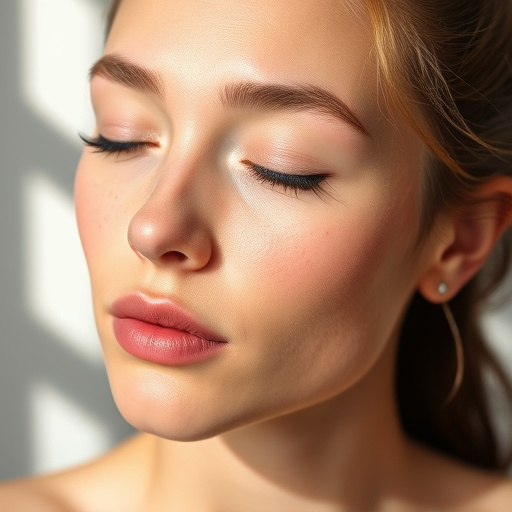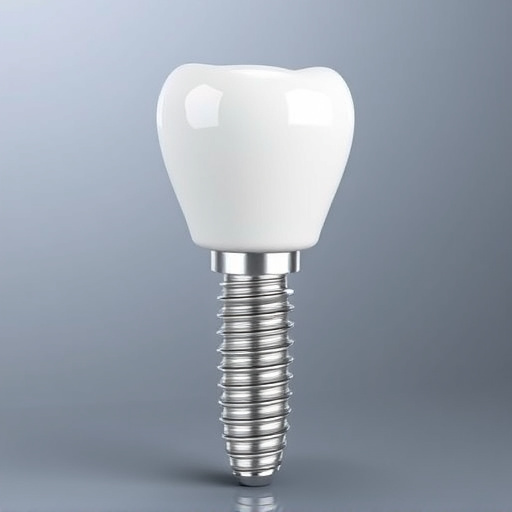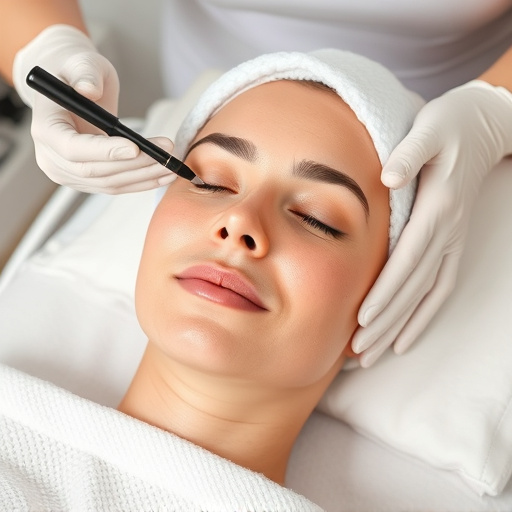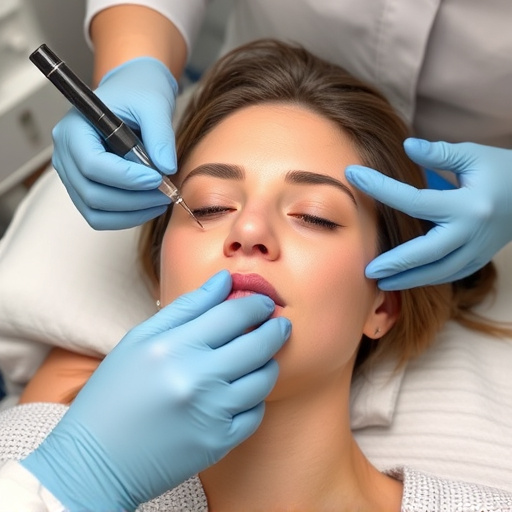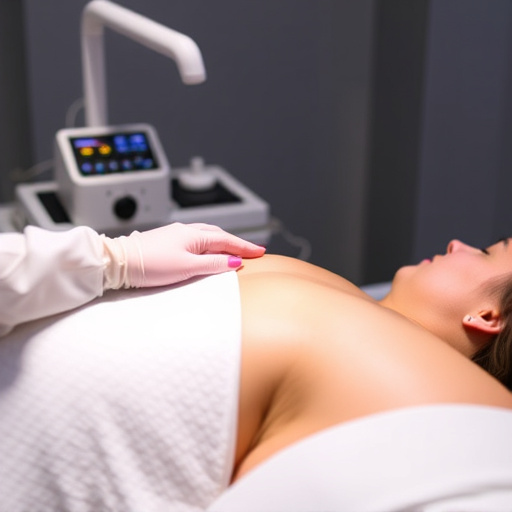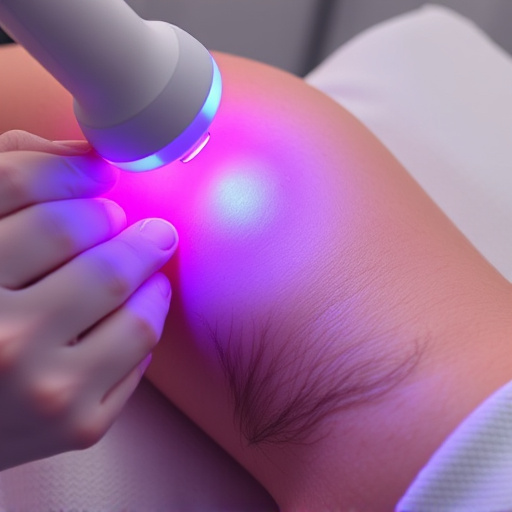For individuals with Polycystic Ovary Syndrome (PCOS) dealing with chin hair growth, various effective removal solutions exist. These include gentle traditional threading, customized facials for skin rejuvenation, laser hair removal targeting melanin in follicles, and personalized skincare routines to address pigmentation concerns. Modern treatments prioritize long-term results, minimal downtime, and improved skin texture, boosting confidence through reduced hair visibility and an even complexion.
Many women with Polycystic Ovary Syndrome (PCOS) experience excessive facial hair, particularly on the chin. This is a common yet often embarrassing side effect that can impact self-esteem. Understanding the link between PCOS and chin hair growth is the first step towards effective management. Today, various methods for chin hair removal exist, from traditional waxings to advanced laser treatments. We explore these options, highlighting the most efficient and safe approaches tailored to PCOS patients.
- Understanding Chin Hair Growth in PCOS
- Effective Methods for Chin Hair Removal
- Modern Treatments and Their Impact on PCOS Management
Understanding Chin Hair Growth in PCOS
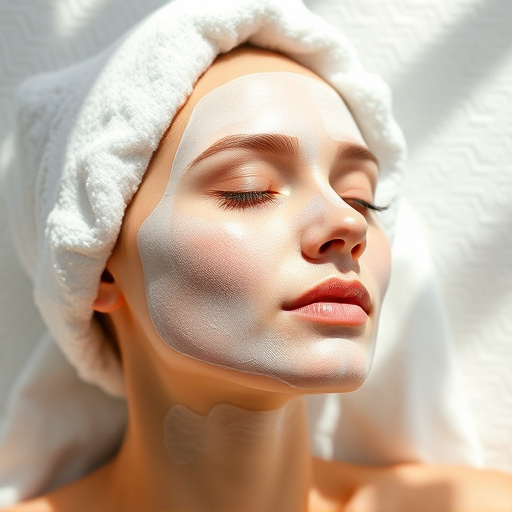
Understanding chin hair growth in PCOS is essential for those seeking effective chin hair removal solutions. Polycystic Ovary Syndrome (PCOS) is a hormonal disorder that can lead to excess androgen production, triggering increased hair growth on various parts of the body, including the chin. This condition is often accompanied by skin brightening concerns due to hormonal fluctuations and insulin resistance. Many individuals with PCOS experience thicker, darker, and coarser chin hair, which can be both cosmetically distressing and emotionally challenging.
Customized facials and facial treatments designed for PCOS-prone skin can help address these dual issues. Professional estheticians can offer tailored solutions that combine depilatory techniques with skin-soothing ingredients to minimize irritation while promoting a smoother, brighter complexion. By targeting both the hair growth and the underlying skin concerns, these specialized treatments provide a comprehensive approach to managing chin hair removal for those with PCOS.
Effective Methods for Chin Hair Removal

When it comes to effective chin hair removal for individuals with PCOS (Polycystic Ovary Syndrome), there are several methods that have proven successful in reducing and managing unwanted facial hair. One popular choice is threading, a traditional technique that involves twisting a thin thread to remove hair by the root. This method is not only affordable but also gentle on the skin, making it suitable for those with sensitive complexions.
For more comprehensive results, many people opt for customized facials tailored to address both acne treatments and skin rejuvenation. These specialized treatments often incorporate ingredients like salicylic acid or glycolic acid, which can help exfoliate the skin and prevent clogged pores that contribute to excessive hair growth. Additionally, laser hair removal has emerged as a highly effective long-term solution, targeting the melanin in the hair follicle to inhibit future hair growth. Combined with regular skincare routines focusing on hydration and protection, these methods offer women with PCOS sustainable alternatives for managing chin hair removal.
Modern Treatments and Their Impact on PCOS Management

Modern treatments for chin hair removal have significantly advanced, offering effective solutions for those managing Polycystic Ovary Syndrome (PCOS). Unlike traditional methods that could be time-consuming and sometimes painful, contemporary options focus on long-term results with minimal downtime. Laser hair removal, a popular choice, uses targeted light energy to inhibit hair growth, leading to reduced chin hair over several sessions. This non-invasive approach is particularly beneficial for individuals seeking a permanent solution or a significant reduction in hair visibility.
Additionally, personalized skincare routines incorporating specialized ingredients can complement chin hair removal treatments. Chemical peels, for instance, are used to exfoliate the skin and target excess pigmentation often associated with PCOS. By combining these modern treatments, patients can experience not only reduced chin hair but also improved skin texture and a more even complexion, enhancing their overall appearance and confidence.
For individuals with Polycystic Ovary Syndrome (PCOS) managing excessive chin hair can be a significant concern. Fortunately, modern treatments offer effective solutions for chin hair removal. From traditional methods like shaving and waxing to advanced techniques such as laser therapy and electrolysis, various options cater to different preferences and skin types. Understanding the underlying causes of chin hair growth in PCOS is key to choosing the best approach. Today’s innovative treatments not only provide permanent results but also contribute to overall PCOS management, offering a clearer, more comfortable path towards confidence and well-being.
